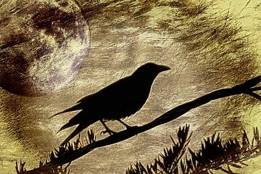-
Definition
-
Definition
-
Did you know?
-
Synonyms
-
Example Sentences
-
Word History
-
Related Articles
-
Podcast
-
Entries Near
-
- To save this word, you'll need to log in.
Did you know?
If you are aghast, you might look like you've just seen a ghost, or something similarly shocking. Aghast traces back to a Middle English verb, gasten, meaning "to frighten." Gasten (which also gave us ghastly, meaning "terrible or frightening") comes from gast, a Middle English spelling of the word ghost. Gast also came to be used in English as a verb meaning "to scare." That verb is now obsolete, but its spirit lives on in words spoken by the character Edmund in William Shakespeare's King Lear: "gasted by the noise I made, full suddenly he fled."
Synonyms
Examples of aghast in a Sentence
 Andy Biggs, Newsweek, 24 Dec. 2024
Social media was aghast at a handful of Floridians who chose to ignore evacuation orders and ride out Hurricane Milton in their homes this week.
—
Andy Biggs, Newsweek, 24 Dec. 2024
Social media was aghast at a handful of Floridians who chose to ignore evacuation orders and ride out Hurricane Milton in their homes this week.
— Anders Hagstrom, Fox News, 10 Oct. 2024
Over the past five weeks of the trial, which began on Sept. 2 in Avignon, the five judges—and aghast onlookers from around the world—have had the chance to hear from several of Dominique Pelicot’s 50 codefendants, most of whom have been charged with aggravated rape.
—
Anders Hagstrom, Fox News, 10 Oct. 2024
Over the past five weeks of the trial, which began on Sept. 2 in Avignon, the five judges—and aghast onlookers from around the world—have had the chance to hear from several of Dominique Pelicot’s 50 codefendants, most of whom have been charged with aggravated rape.
— Belinda Luscombe, TIME, 30 Oct. 2024
The internet was just as aghast as Segura and Kreischer as clips of people recreating the Dazed and Confused actor’s recipe but his wife of 12 years backed up her husband.
—
Belinda Luscombe, TIME, 30 Oct. 2024
The internet was just as aghast as Segura and Kreischer as clips of people recreating the Dazed and Confused actor’s recipe but his wife of 12 years backed up her husband.
— Sabrina Weiss, People.com, 26 Nov. 2024
See all Example Sentences for aghast
Sabrina Weiss, People.com, 26 Nov. 2024
See all Example Sentences for aghast 

Word History
alteration (with h after ghastly, ghost entry 1) of Middle English agast, from past participle of agasten "to frighten, become frightened," from a-, perfective prefix + -gasten "to frighten," — more at abide, gast
Note: Oxford English Dictionry, third edition, sees agasten as formed with Middle English gasten, though this verb is not attested until more than a century later, suggesting that gasten may have been formed by dropping the prefix from agasten. Old English gǣstan is attested only once, in Cynewulf's Juliana, and the sense appears to be closer to "afflict" than "frighten." The prefix a- in the modern adjective aghast has presumably been construed as a- entry 1.
13th century, in the meaning defined above
Podcast
Theme music by Joshua Stamper ©2006 New Jerusalem Music/ASCAP
Get Word of the Day delivered to your inbox!
Dictionary Entries Near aghast
Cite this Entry
“Aghast.” Merriam-Webster.com Dictionary, Merriam-Webster, https://www.merriam-webster.com/dictionary/aghast. Accessed 15 Jan. 2025.
Kids Definition
aghast
adjective













Share